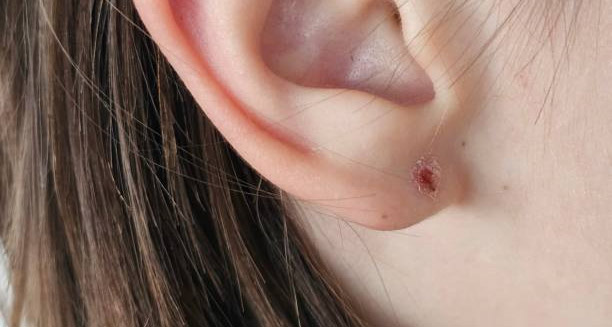Overview of Infected Piercings
Infected piercings are a common concern for individuals who undergo body modification, particularly in the form of ear, nose, or body piercings.
While most piercings heal without problems, some do become infected. This happens when bacteria enter the small wound created by the piercing. The infection may start with mild irritation. But without treatment, it can quickly get worse. The overview of infected piercings shows that people of all ages can be affected. New piercings or unclean conditions raise the risk even more.
A piercing is basically an open wound. The needle breaks the skin, which allows bacteria to enter. If the piercing studio uses clean tools and gives proper advice, the body usually begins healing well. Good aftercare helps too. But if hygiene is poor during or after the procedure, that open wound becomes a target for infection. Signs to watch for include redness, swelling, heat, pain, fluid discharge, and sometimes fever or spreading redness on the skin.
Where Infections Happen Most
Some body areas get infected more easily. This depends on how much blood reaches the spot, how often it touches things, and how much movement or friction happens. Cartilage piercings—like those in the nose or upper ear—are more risky than soft earlobe piercings. That’s because less blood flows through cartilage. Belly and genital piercings are also more prone to infection. These areas move more, stay moist, and come into contact with more germs.
In some cases, the infection spreads beyond the piercing. This is rare but serious. It can affect nearby tissue or even enter the bloodstream. That’s why early care is so important. Fortunately, most infections respond well to treatment. Doctors may use skin cleaners or prescribe antibiotics. Even so, the best way to deal with infections is to stop them from happening in the first place. Clean equipment and careful aftercare are key.
Infection Prevention in the Overview of Infected Piercings
Many people choose piercings for cultural, personal, or style reasons. This trend keeps growing, but it’s important to understand the risks. The overview of infected piercings highlights why knowing how to spot and treat problems early really matters. It protects your health and helps your piercing last.
By learning what causes infections and how to avoid them, people can enjoy body piercings safely. Proper care leads to better healing and fewer issues in the long run.


